Note: These are the best books I read, not the best books that I read that came out in 2022. I typically read books in order of publication date, and my list of books to read as of this writing stands at 265. So when I add a new book that was published in let’s say 2010, I’m going to end up reading it before a book that has been on my list longer, but was published in 2015. So, if you’re looking for my opinion on the best books of 2022, maybe come back in a year or two.

I started to get serious with tracking my reading in Goodreads a few years ago. In recent years, I’ve read a substantial amount. This is due in large part to the fact that I tend to have 3-5 hours every morning before work in which I can listen to audiobooks. So between doing that at double speed, reading the occasional ebook and paper book, and reading to my children every night, I’ve gotten a few pages put away over time. Last year, it was 184 books and over 63,000 pages. This year, 146 books and over 50,000 pages so far.
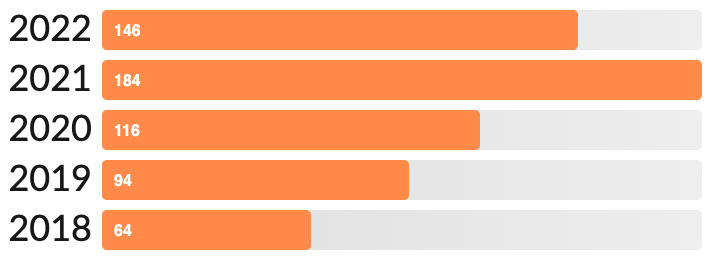
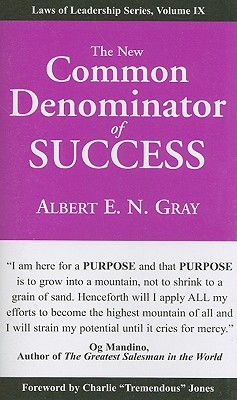
The New Common Denominator of Success is a speech given by Albert E.N. Gray numerous times throughout his career. You can actually find the speech online for free if you just search for it.
I first read it online and then was motivated to purchase a copy because I felt it was so powerful.
One of the key concepts in Gray’s speech is that there are things in our jobs that no one likes doing. If you are–like Gray–a salesperson, you very likely do not enjoy cold calling or following up with unresponsive leads. One of the primary things that separates successful from unsuccessful people though is that successful people do the things that are hard, the things that they do not like to do, because they know that is what it takes to succeed.
In essence, this is similar to the 10,000 hours of deliberate practice idea popularized by Malcolm Gladwell. The very top echelon of people in any field might actually spend less time practicing their craft, but they are more deliberate and they do the things that are hard because they know that is what it requires to achieve their goals.
Gray’s speech takes maybe 10 minutes to read and is a great way to communicate what success requires.
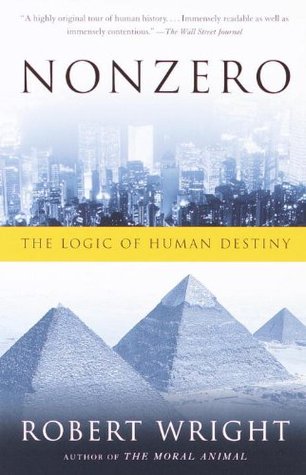
Nonzero by Robert Wright is a fascinating book.
The name speaks to the central argument, which is that the growth of communications, civilizations, and even globalization to some extent create value and accelerate value creation. For example, when you live in a village of 150 people and have no communications or trade with people outside, you benefit only from the knowledge, thinking, innovation, work, etc of those 150 people. But when your 150-person village communicates and trades with the next 150-person village, you benefit from the fact that they can produce and sell something to you for cheaper than you can produce it, that some of their people might develop an innovation that you could not have come up with on your own, and more.
Fundamentally, this is a history book that argues that there is a non-zero-sumness to human development that results in greater and faster transformations of everything from technology to morality and beyond.
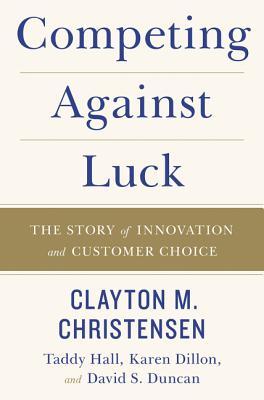
Competing Against Luck is not as intriguing of a book as those above, but you should read it simply because it introduces Jobs to Be Done research, or what they call Jobs Theory quite a bit in the book.
Jobs Theory posits that every product is a service because people do not buy a product because they want to own that product. They buy a product because it does something for them. Or, as Harvard Professor Theodore Levitt put it, “People don’t want to buy a quarter-inch drill. They want a quarter-inch hole!”
Ultimately, when you connect with people on the job they need to get done rather than for example features, benefits, personas, or any other common marketing, sales, and strategy frameworks, you can better succeed in selling your product or service because people need hydration, they need to feel like others want to look at or be them, they need to make their children happy. They don’t simply need water bottles, fancy watches/clothes/cars, or McDonald’s milkshakes simply to own them. They have a job they need the product to help them get done.
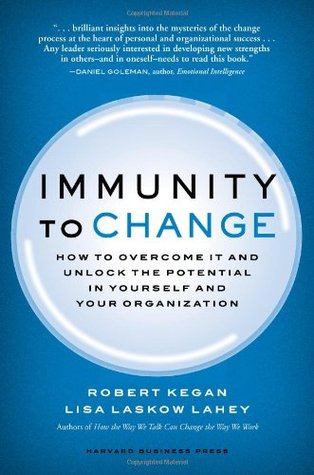
Immunity to Change is the number 1 or 2 best book I read all year.
The core of the argument is that we often fail to change because we misdiagnose the challenges we face as needing technical rather than adaptive solutions.
For example, every year in the United States, millions of people commit to lose weight in the New Year, and on average 107% of the weight that is lost is gained back. So if you and your family all lose 100 pounds, you as a collective gain back 107 pounds.
The reason for this is that most people that commit to change identify the solution as a technical one. For example, Lose Weight = Don’t Eat M&Ms or Go On The Mediterranean Diet. For the hustle bros, it might be Become A Success = Take Cold Showers.
The reality of many things that are difficult to change though is that our behavior (eg. an unhealthy diet or lifestyle) likely gives us benefits that we might not recognize. As in, perhaps you hate your job, but cannot find another one, and you and your spouse disagree on how to parent your children and are not getting along well as a result. So everyday when you get home from work, you don’t want to fight anymore. Your day was already terrible, so you open a 6-pack, grab a bucket of KFC, and sit in front of the TV for a few hours–while your children run wild in the background–before you eventually fall asleep and repeat the cycle the next day.
In this case, what is your unhealthy lifestyle doing for you? It might be helping you find some peace and relaxation that you need as a result of not getting it in other places. So, you can say you’re going to start running or eating healthy or whatever else, but as soon as you have that next bad day and you find yourself needing some peace and relaxation, you will go back to the unhealthy lifestyle.
To solve problems like this, you need not a technical solution like Do X or Don’t Do Y, but rather an adaptive solution that takes into account the needs your behavior serves. In the example above, you would need to find a solution that helps you still get that peace and relaxation while also serving the desire to lose weight.
At work, if you’ve ever tried to guide someone that was a bad communicator or couldn’t stick to deadlines and found that they just wouldn’t change no matter how much they said they would, it is likely because they needed an adaptive rather than technical solution.
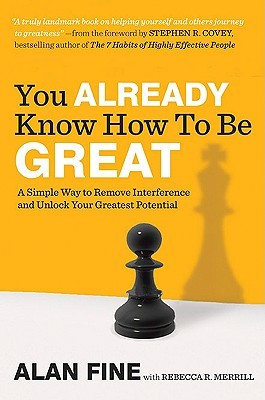
You Already Know How to be Great might be the best book I read all year. It’s this book or the book above.
Alan Fine is the co-creator of the G.R.O.W. model, which was initially developed based on Timothy Gallwey’s Inner Game. The basic concept is that most guidance is provided from the outside in. Coaches and bosses say, “Next time the client talks to you like that, do this.” As in, “I (someone or something outside of you) know better than you do, so listen to me.” So rather than focusing on what you know and how you feel when you’re in the arena performing, you’re instead trying to think about what someone else told you and how and when to use that information. Instead, the G.R.O.W. model takes an inside out approach in that it asks the performer to focus on what they already know, feel, and experience and to use that to improve their performance.
For example, rather than telling a colleague that delivers a bad report, “Just do it like this next time,” I might ask them what they notice when reports go well or poorly and then have them focus on the things that they do when the repots go well so that they can improve and accentuate those.
Using this model helps to shift responsibility for success and failure from the coach to the performer and is a powerful way to get people motivated about change and improvement.
If you are a Goodreads user, I encourage you to connect with me there. And/or if you have recommendations for books, shoot me a line at eric@inboundandagile.com.
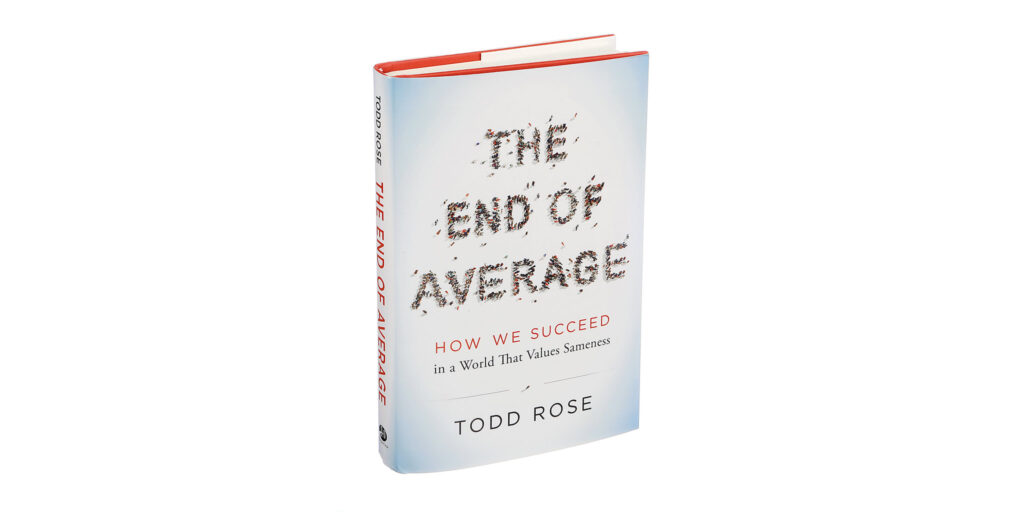
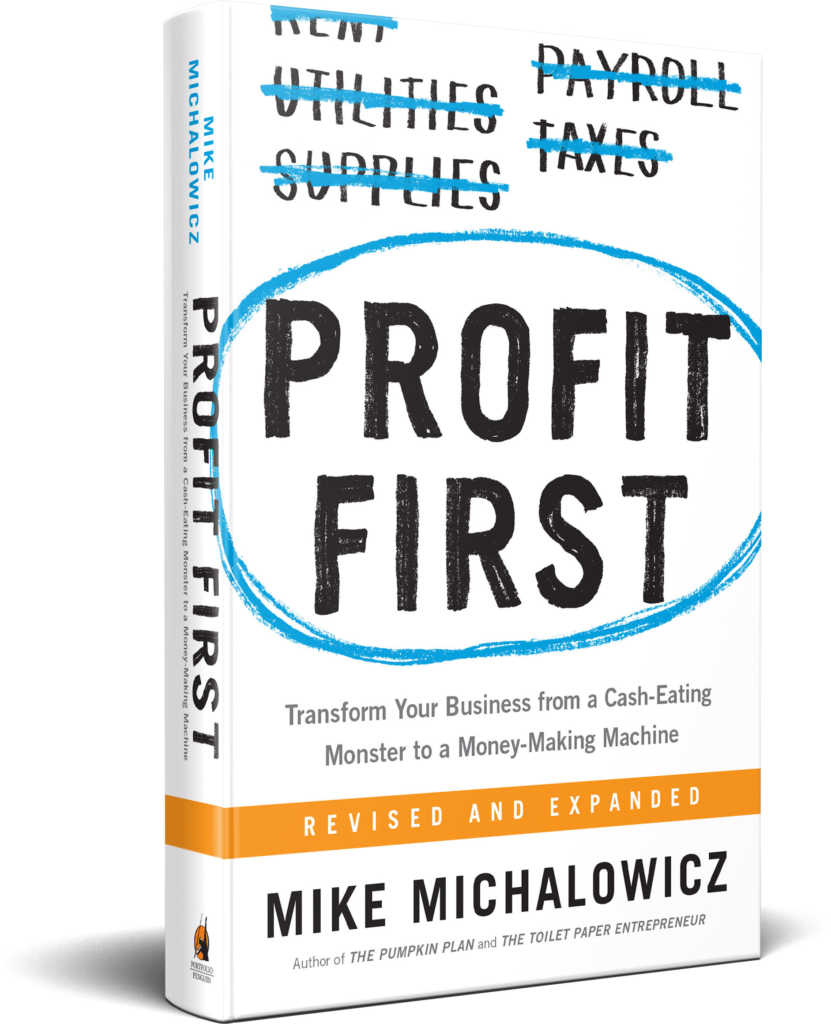
One thought on “The best books I read in 2022”
Comments are closed.